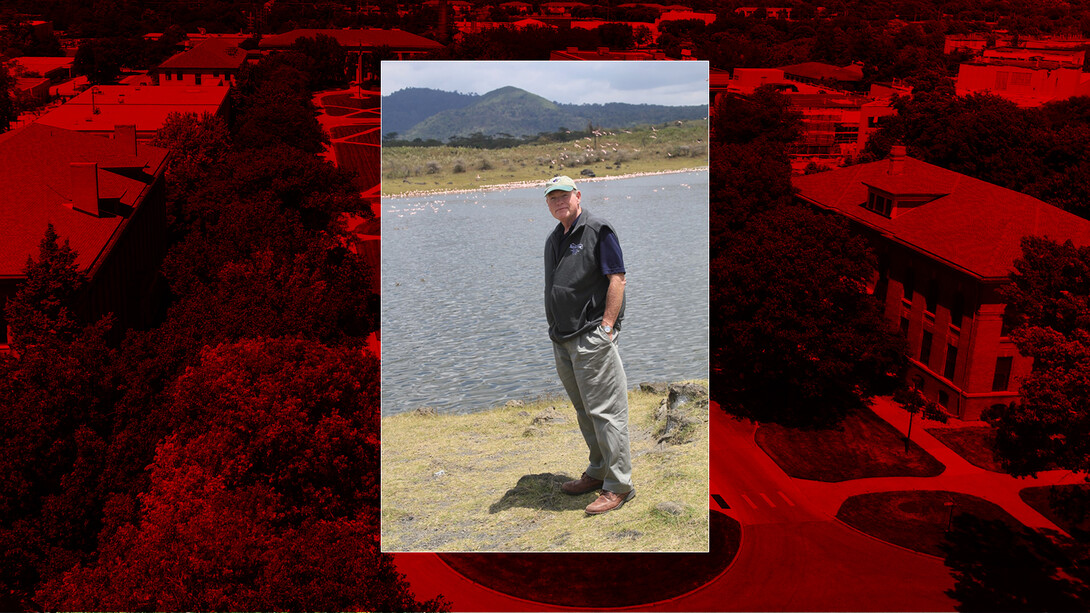
About Scott
I was born Alabama and raised in upper east Tennessee and southwest Virginia - small towns and farms of southern Appalachia.
I earned my Doctor of Veterinary Medicine degree at the University of Tennessee in 1980. After three years in private practice with mostly dairy cattle, I completed a doctorate degree in veterinary microbiology at Texas A&M University in 1986. I joined the faculty at Kansas State University, securing a promotion to associate professor in 1992.
Through the 1990s, I worked in both the university and the private sectors as a scientist and researcher, culminating in a position as a Senior Research Investigator and Director of Bioprocess Development at Pfizer Animal Health in Lincoln, Nebraska. Since then, I was a professor at the University of Nebraska, served as president of the American College of Veterinary Microbiologists, and worked as a research leader on arthropod-borne animal disease for the USDA ARS.
I have lived in Tennessee, Texas, Kansas, Georgia, Connecticut, Nebraska, back to Kansas, and now back to Nebraska.
What is your position at the University of Nebraska-Lincoln?
I am the Director of the School of Veterinary Medicine and Biomedical Sciences and I am responsible for oversight of the research, teaching and Extension and outreach programs, including management of the Nebraska Veterinary Diagnostic Center (NVDC), the Professional Program in Veterinary Medicine (PPVM), a joint DVM program with Iowa State University and, the Great Plains Veterinary Educational Center (GPVEC). As the associate dean, I am also responsible for on-going coordination of the professional program with students located at the Iowa State University College of Veterinary Medicine and the UNL SVMBS. In these roles I contribute to the integrated Extension, research, and teaching land grant mission of the SVMBS and the IANR - as an effective scholar and citizen.
What drew you to the University of Nebraska-Lincoln?
I originally was attracted to the University and the IANR veterinary programs by the quality and relevance of the teaching and research programs. I left and was away for about 10 years working for USDA ARS in Manhattan, Kansas as a research leader, research veterinary medical officer and center director. What drew me back were the same two characteristics, quality and relevance, along with obvious growth of and investment in the IANR programs.
What aspect of working in an educational setting do you enjoy the most?
I have always enjoyed the teaching and learning interactions in classrooms, laboratories, or any setting. Not too long ago, I provided a spontaneous social media “seminar” on influenza to a group of elementary school teachers in Boston. My son and daughter-in-law are public school teachers there. My daughter-in-law saw an NET interview that I did and that lead to the interaction. The bottom line was that bacon is safe and not a source of swine flu. That was fun. There were several Boston teachers that learned a little bit about swine husbandry, swine health and pork processing that day. I learned about what was important information for them as consumers.
What do you consider your greatest achievement?
I have been fortunate to participate in many successful research activities, educational programs and professional services. But it has been very rewarding to me to participate in the discovery, development, and manufacturing of billions of doses of vaccines for all creatures great and small – two legs, four legs, two legs and two wings, and fins. I like to think that I have contributed to the prevention of much pain and suffering as well as feeding the world.
What is something that most people don’t know about you?
I am an aspiring novelist – aspiring to publish my first historical fiction novel. Fiction and entertainment reviewers are tougher than science reviewers. Or, I am an incredibly poor storyteller.
What is your life like outside of work?
I enjoy visiting children and grandchildren and family. I like to be outdoors, and I enjoy fishing. I trek to Wyoming on a regular basis. I try to get together with former football teammates once a year on a fishing expedition somewhere in Tennessee. We used to kid one another about who was the fastest, now we complain about who is the slowest.







